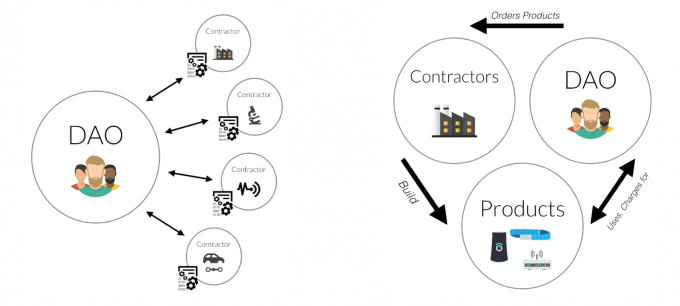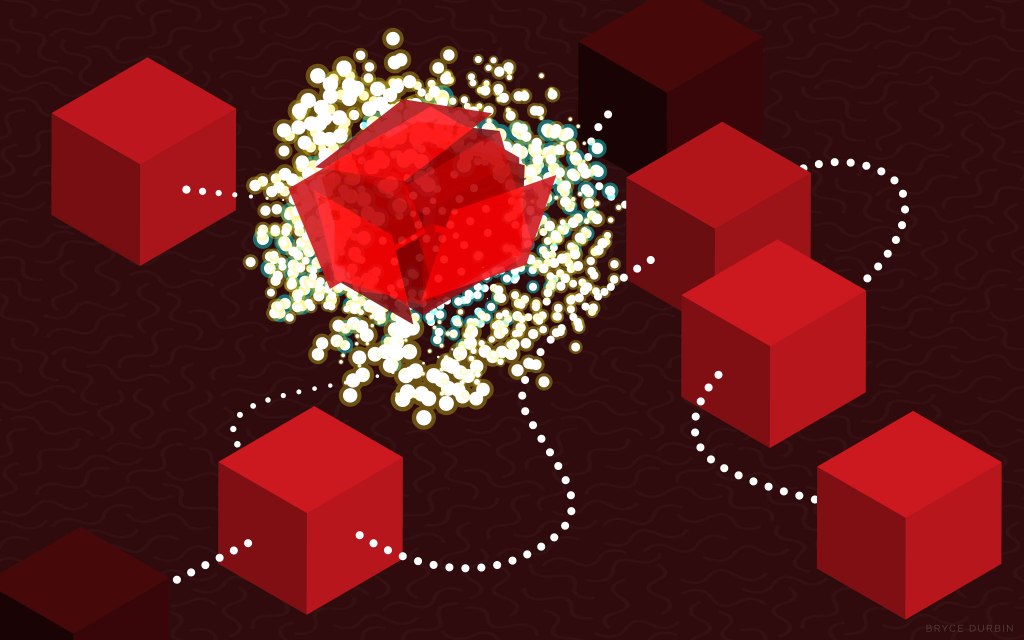Seth Bannon
More posts from Seth Bannon
A new paradigm of economic cooperation is underway — a digital democratization of business.
Over the past couple of weeks a project with no mainstream press has become the second biggest crowdfunding project in history. It’s not crowdfunding a product, an artwork or a new cryptocurrency. It’s crowdfunding — or more accurately, crowd-founding — a corporation called “The DAO.” This is a corporation whose bylaws are written entirely in code.
But not quite. Wikipedia defines a corporation as “a company or group of people authorized to act as a single entity (legally a person) and recognized as such in law.” While The DAO is a group of people authorized to act as a single economic entity, no governmental body recognizes it as such.
Rather, it’s given its authority purely through code. The DAO is a decentralized autonomous organization. It, as of the time of writing, controls more than $100 million in assets, and yet it exists entirely on the Ethereum blockchain.
In exchange for supporting The DAO financially (in the form of Ether), backers get DAO tokens, which they can then use to vote on the direction of the organization. They can use their tokens to vote on big governance issues (akin to traditional shareholders) but also on minute details of how The DAO spends its resources. In this way, token holders have total control over The DAO’s assets and its actions.
People with projects they’d like to build for The DAO can submit ideas in the form of a proposal written in plain English accompanied by smart contract code. The code automatically executes payments so long as certain agreed-upon conditions are met. Because this is all built on top of Ethereum, which allows for robust smart contracts, this can all be done autonomously.

As an example, one popular proposal by the company Slock.it is to build for The DAO a “universal sharing network.”
This network would essentially be the technical backbone for the decentralized sharing economy — imagine that being able to accept payments from renters and unlock accordingly was a function of a lock itself.
Under the proposed arrangement, Slock.it would be contracted to build this infrastructure, but The DAO would then “own” the end product. The DAO could then charge a percentage fee for every transaction processed over this network, thereby returning profits to DAO token-holders in the form of dividends.
In this sense, The DAO is something entirely new. It’s something between a traditional corporation, a VC fund and a Kickstarter — only entirely decentralized, democratic and existing only in code.
Because of this, The DAO is a paradigm shift in the very idea of economic organization. It offers complete transparency, total shareholder control, unprecedented flexibility and autonomous governance.
DAOs could offer new opportunities to democratize business. Currently only the privileged can found and fund new companies.
By allowing economic cooperatives to be spun up with a line of code, and by allowing anyone on the Internet to become owners of these organizations, DAOs may allow more people than ever before to fully participate in and benefit from the innovation economy.
To achieve this goal, however, a lot still needs to happen. It’s currently difficult to become a token-holder as it requires a somewhat sophisticated knowledge of cryptocurrencies. This process would need to be simplified and streamlined. Also, more needs to be flushed out around token-holder protections and democratic participation. These challenges don’t seem insurmountable.
In a world of increasing automation, and consistently better AI, DAOs may well become the norm over the next decades. High-frequency traders have completely ceded day-to-day trading to algorithms they’ve written, which are better informed, faster and less error-prone than the traders themselves.
Similarly, DAOs open the door to allowing algorithms to quickly and seamlessly make day-to-day spending decisions and even governance decisions for corporate entities. One could even imagine a future where entirely autonomous economic organizations are competing with the Googles and Amazons of the world.
While the future seems bright for DAOs, there are still many questions that need to be answered. What kind of asset is a DAO token, legally? Is it like a cryptocurrency? Or public company stock? Or the share of a business you co-founded?
And what happens when disputes arise between The DAO and its members, or between The DAO and contractors? It’s easy and clean to simply say “the code decides,” but this isn’t yet realistic. Traditional courts might one day be asked to weigh in on such disputes.
This is new frontier, and the list of unknowns goes on. What does this mean for the future of corporations? The future of VC? While it could certainly be a profitable and successful endeavor itself, The DAO is in many ways a grand experiment in a new form of economic cooperation. Many of the unpredicted benefits and unexpected kinks will be discovered by this first pioneer. It will sure be fun to watch.































Comment